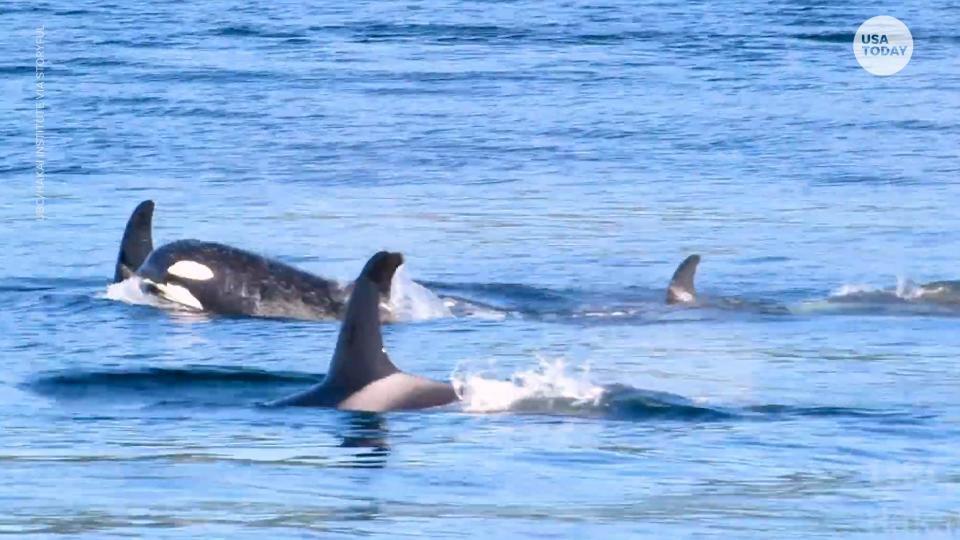Nearly two dozen sharks found dead after two killer whales' 'surgical' feeding frenzy
A surgical feeding frenzy off the African coast by a pair of killer whales has left at least 20 sharks dead, scientist say.
The discovery came after 20 disemboweled sharks washed up on a South African beach putting the spotlight on two shark-hunting orcas whose behavior is being documented by researchers.
The whales killed at least 17 of the sharks "in one sitting," Marine Dynamics Academy reported on Facebook.
Marine biologists said they were alerted to the find by beach goers who last week stumbled upon the carcasses in Gansbaai, a fishing port just over 100 miles southeast of Cape Town.
Port and Starboard
All evidence points to "Port" and "Starboard," an infamous pair of killer whales spotted off Gansbaai only three days earlier.
The pair, known to prey on several species of sharks in the area, were tracked by a team of scientists on board Marine Dynamics Academy's vessel.
“We observed the two orcas repeatedly diving down in a small area for almost two hours before they departed offshore,” said Ralph Watson.
The following Tuesday, eleven dead broadnose sevengill shark carcasses were discovered, he said.
Necropsy findings
Alison Towner, a PhD candidate at Rhodes University leads the research on killer whales preying on sharks in Gansbaai and helped perform necropsies on the sharks.
“Each seven-gill shark was torn open and missing its liver; they were all females measuring between 1.6-2.3 meters," said Towner, also with the Dyer Island Conservation Trust.
Storm and surge conditions early in the week provided good conditions to push the shark carcasses on shore, the organization posted on Facebook.
"This is the largest amount of sharks these orcas have killed in this area in one sitting," Towner said last week after 17 of the shark's bodies washed ashore.

Orca pods can grow as big as 30
According to the Monterey Bay Aquarium, orcas live in tight-knit family groups, or pods, of two to 30 individuals. The pod moves from place to place as food sources change with the seasons
Natalie Neysa Alund covers trending news for USA TODAY. Reach her at nalund@usatoday.com and follow her on Twitter @nataliealund.
This article originally appeared on USA TODAY: At least 20 sharks killed by 2 killer whales' feeding frenzy

